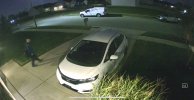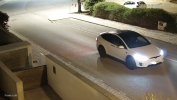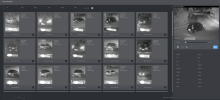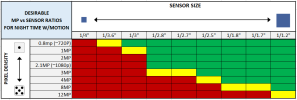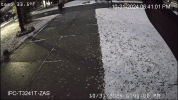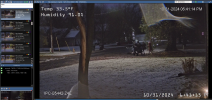Using Blue Iris and CodeProject usually works well during the day for person detection but I struggle with night/dark detection, I'm assuming this is more of a camera problem than an AI problem but I could be wrong. I'm looking for advice or suggestions as to what I can do to clean up this image for better detection. The attachment is a screenshot of a video from this morning when I was leaving for work, motion was detected by the camera however AI didn't pick me up and determine that I'm a person. I can change the exposure on the camera to make the image brighter but that doesn't seem to help, it just makes the person blurry like a ghost. Within Blue Iris, I'm using ipcam-general as the model which I thought would be best for day/night person detection, should I be using a different model instead? Any other recommendations or suggestions?
